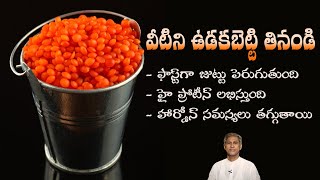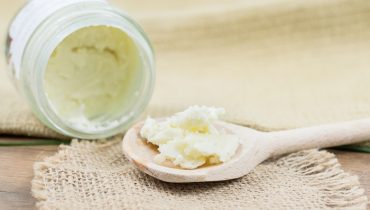Why Does Black Hair Need Protein Treatments And Reconstructors?

Contents:
- Why Protein Treatments And Reconstructors Are Important In Black Hair Care
- Types Of Proteins And Their Benefits
- Adding Protein Treatments and Reconstructors to Your Regimen
- Final Considerations
Why Protein Treatments And Reconstructors Are Important In Black Hair Care
If I could offer one piece of sage advice to keep your tresses on point, protein treatments and reconstructors would be it. Protein is the muscle behind strong lustrous hair.
Of course, moisture is a must, but sometimes we forget just how important moisture is to maintaining healthy hair. We may take it for granted especially if protein is a big part of our diets, not stopping to think that we may be doing ourselves a disservice by thinking that the protein we eat is enough to service our bodies and hair. Unfortunately, this is not always the case.
In addition, some of us may have come to loathe protein because often protein is associated with meat and we may not eat meat in the interest of dietary changes to improve our health. We may also come to dislike it because of past experiences of having a hard hat for hair after doing a protein treatment. But could it be that the protein was applied at the wrong time? Better yet, could it be that you need to find the right protein for you?
To understand why black hair requires protein treatments you must first understand what the purpose of protein in the hair is. Hair is made up of Keratin a kind of protein. When hair undergoes any chemical service or is damaged by misuse of heat tools, protein is lost hence the hair loses some of its elasticity or strength.
By using products that contain protein in them, you improve the hair’s elasticity and strength properties. Very curly and kinky* hair tends to be dry and extremely fragile even in its natural state. With the addition of relaxers or color services, the hair tends to become weaker. Using a protein based conditioner improves the health of the hair immensely and should be applied to any regimen.
Types Of Proteins And Their Benefits
Depending on the kind of protein used in the hair product it can perform a variety of functions. Here are some examples:
- Hydrolyzed Human Hair Keratin – This is the most potent of the proteins and matches the keratin in hair exactly. It keeps the hair pliable and strong.
- Hydrolyzed Keratin Protein – The protein has been broken down so it can penetrate all layers of the hair better and as such is excellent for deep conditioning*. It also keeps the hair pliable and strong.
- Silk Protein – Silk is the strongest natural fibers and has very small molecules that can penetrate the hair shaft. It is excellent for deep conditioning* as it’s known to soften the hair.
- Animal Protein – This will generally just coat the hair shaft and repair damage on the outer layers.
- Vegetable Protein – This absorbs more easily into the hair without leaving any build up on the hair shaft.
- Wheat Protein – Used in many conditioning products, this is a moisturizing and strengthening protein which also improves the hair’s ability to maintain moisture levels.
- Collagen Protein – This increases the elasticity of the hair.

Contents:
- Why Protein Treatments And Reconstructors Are Important In Black Hair Care
- Types Of Proteins And Their Benefits
- Adding Protein Treatments and Reconstructors to Your Regimen
- Final Considerations
Adding Protein Treatments and Reconstructors to Your Regimen
Protein treatments range from relatively light to quite strong. Many of us need light protein in our regimens, but without sufficient knowledge of our hair and what it needs, we may end up applying heavy proteins when that is not what is required.
Some of the proteins we need are already formulated into the shampoos and conditioners that we use and if we aren’t paying attention, we may be using these consistently on a weekly basis along with protein rich oils* like coconut oil*, or heavy butters* as well as hard protein treatments, until we notice that hair has gotten a bit hard and may be breaking off. Yes, protein overload can lead to brittle hair that eventually breaks. In such cases, restoring moisture and laying off the protein for a few weeks can do wonders.
If your hair is highly porous, won’t hold moisture, tends to feel mushy and weak, the possibility exists that your hair has lost structure as a result of loss of protein. You may need protein reconstructors to help restore your hair. Generally, protein shampoos and conditioners and reconstructors can safely be used bi-weekly without adversely affecting the hair. A good light protein is Motions CPR Protein Reconstructor.
Strong proteins, on the other hand, are neither shampoos or conditioners. Their sole purpose is to impart protein to the hair so they are referred to as protein treatments. Good examples are Aphogee 2 Step Protein Treatment* and Nexxus Emergencee.
These should only ever be used when extreme breakage is being experienced or where breakage is anticipated e.g. before a chemical service. Their recommended use is every 6-8 weeks and should always be followed up with a moisturizing conditioner*. See the article on how to choose a conditioner.
Final Considerations
No one knows your hair like you do. Find out what your hair is asking you for then apply the knowledge you have garnered here to make the best choice about what type of protein treatments and reconstructors are best suited to your needs and your lifestyle. Whatever you do, just know that you can’t afford to eliminate protein from your regimen altogether, as that could lead to unfavorable results.
Updated by Marsha Buchannan




